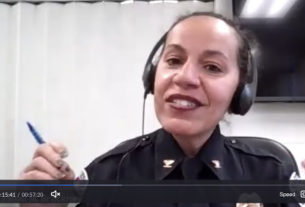An Interview with a Postal Worker
The United States Post Office was first created in 1775 by the Second Continental Congress, with Benjamin Franklin serving as the first Postmaster General. This early incarnation of the post office deliberately prioritized the mailing of newspapers over personal correspondence in an attempt to help strengthen the bond of the colonies through the sharing of civic news. Franklin and his eventual successors helped to streamline the mailing process by investing in new transportation technologies, from the horse and carriage to the national roadway system to the intercontinental railway service.
In 1970, postal workers across the nation organized a massive strike in protest of poor working conditions and low wages. In the face of the collapse of the U.S mail system and falling stock prices from a spooked market, President Richard Nixon acquiesced to the strikers demands and agreed to give the major postal unions the right to negotiate on wages and working conditions. In the aftermath of the strike, Nixon passed the Postal Reorganization Act of 1970, which transformed the United States Post Office Department into the modern Postal Service. The Post Office now is a semi-independent branch of the U.S. government, required to operate like a business and run its operations solely through the sale of its products, mostly postage, while receiving no tax revenue.
While voting by mail has been a regular practice for over a hundred years, in 2020, mail-in ballots have been the source of enormous controversy. Amid accusations of voter fraud, disturbing accounts of mail-in ballots being discarded, and widespread reports of mail delays, the integrity of the United States Postal Service is perhaps now more important than ever.
My father, Peter Walpole, is a 33 year veteran of the post office, and in some ways it shows. He is a middle aged man, nearing 60, sporting a salt and pepper beard and a boyish smile. For 20 years, he worked as a letter carrier, but in the last 13 years he has worked in customer support and is now a senior sales executive.
“I work with large businesses on their shipping and mailing needs. When you get a box in the mail, that’s the kind of thing I help set up,” he said. When asked how he thought the post office had changed through the years, Walpole paused for a moment before answering.
“I was there at the post office when we hit our peak letter mail volume, and it was extraordinary how much mail was being processed by the postal service,” he said. “When there was the initial great recession back in the late ‘90s, I saw that letter volume just fall off the cliff. I think everyone knew that the internet would take some of that first class letter volume away, but I’m not sure anyone anticipated it to drop so dramatically and so fast. We’ve seen some of that volume come back, especially in marketing mail. But people don’t send handwritten letters and cards as much as they used to, the internet has taken a lot of that business,” said Walpole.
He paused again, then continued, “On the other hand, the rise of the internet has seen us grow dramatically in package volume. Small boxes are being shipped out by e-commerce businesses. That growth in package volume has not offset the revenue loss from letters, but it helps.”
As soon as I asked him what he thought people should know about voting by mail, Walpole’s demeanor seemed to change. Suddenly he seemed more confident, more determined.
“The thing about voting by mail (is that) there’s definitely concerns with our network and there’s stuff that’s been in the news, and I understand that,” he said.
“But we handle that kind of volume as a regular thing. And so if everybody in the nation voted by mail, they still would be a relatively small percentage of our overall volume. There are issues about network delays, and so there’s been a strong effort to get out the word that if you’re going to vote by mail, vote early. I think the post office will do better than people expect, given all the stuff that’s been in the news. There’s virtually zero evidence of widespread voter fraud. There’s always an issue with voter fraud in every election, but it’s miniscule statistically. I think that’s going to be true this year, and I think that we’re going to get the ballots done. There’s good, dedicated professionals in the postal service that are committed to getting this job done, we take it very seriously.”
“I’m glad we’ve been in the news so much because there are some structural changes that need to happen in the postal service,” he said. “But by the same token, we’ll handle the election mail just fine. I’m very comfortable saying that.”







